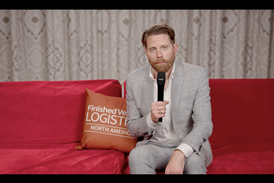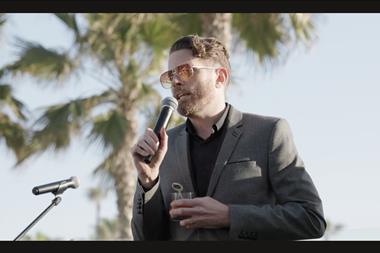 Logistics and transport provider DSV has announced plans to double its revenue from the automotive sector to €1 billion ($1.4 billion) by 2020, which would account for 20% of its overall business.
Logistics and transport provider DSV has announced plans to double its revenue from the automotive sector to €1 billion ($1.4 billion) by 2020, which would account for 20% of its overall business.
Talking to Automotive Logistics at last week’s Multimodal exhibition in Birmingham, UK, the company said that the automotive sector would be a central focus on its plans to establish a global footprint for services across its three divisions: Air And Sea, Road and Solutions (the latter which includes inbound logistics, warehousing and inventory management). According to DSV it is looking to grow existing contracts organically to provide end-to-end logistics services in established and new markets across those divisions.
“There is a focus on growing automotive and we have a clear development plan up till 2020,” said Arcadio Martinez, sector development manager. “We have an aspiration across the three divisions to double the business we have right now.”
DSV currently has more than 50 automotive customers in 20 countries from which it generates €500m in revenue. There is a rough split in its customer base of 60/40 between OEM and tier suppliers. Existing OEM customers include: GM, Volvo, Renault-Nissan, Audi, Maserati, Ford, Suzuki, Scania, MAN, Case New Holland, Komatsu and AGCO. Amongst its tier supplier customers are: Bosch, Getrag, Lear, TRW, Federal Mogul, Valmet Automotive, Pilkington, Excite Technologies, Pirelli, Goodyear, Yamaha and Ducati.
The company is planning to build on strong performance in the sector, predominantly in Europe, to integrate services there as well as offer coordinated services in other markets, including North America, China and Brazil. DSV’s strategy will be to exploit the increasing trend amongst customers to development procurement on a global level.
“What we can see with our customers is that, before, there was more of a regional emphasis and decisions were based on working with the local players,” said Martinez. “These organisations are now becoming more global, on the procurement side of things as well.” He added that those customers were looking at how to leverage volumes across a smaller number of providers: “We see that as a trend in the industry,” he said.
The company is picking up more business with the tier two level as products become more hi-tech, according to Julie Heard, head of Vertical Sales. “We have major target accounts [and] it is a two-way relationship because they have heard about the growth and the development we have within the modes, but also through IT and integration,” she said. “That sort of visibility is just as important now.”
That applies directly to the company’s Solutions division, which it has grown to an €800m business across all industry sectors, and one which is based on a close relationship with the customer and a bespoke supply of services according to particular needs. Again, automotive is one of the main drivers of that development.
“Our clients are demanding geographical versatility and the application of best practice principles globally,” said Jens Riemann, global head of Automotive for DSV's Solutions Division. “As new markets are explored and developed they expect their proven partners to grow with them, export knowhow and invest into operations in new markets while building on local knowhow there."
Riemann went on to say that the company made kaizen the basis of its approach and applied best practice to improve operations in mature markets where its clients were looking for alignment with home operations and cost savings.
The company offers a range of services including sequencing, just-in-time deliveries, line feed, kitting, pre-assembly, configuration, and customisation. It also provides spare parts distribution for OEMs and tyre makers.
“We do provide multiple services linked to the automotive manufacturing side. Other operations, such as our spare parts and aftermarket operations, do cover a variety of businesses,” said Riemann, adding that the company was seeing organic growth as well as new business coming on board. One recent example is last month's contract to take over the supply chain management of inbound deliveries to Audi’s assembly plant in Neckarsulm, Germany in a contract thought to be worth around €30m.


























![Global[1]](https://d3n5uof8vony13.cloudfront.net/Pictures/web/a/d/s/global1_726550.svgz)










